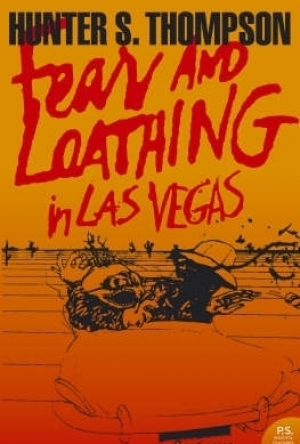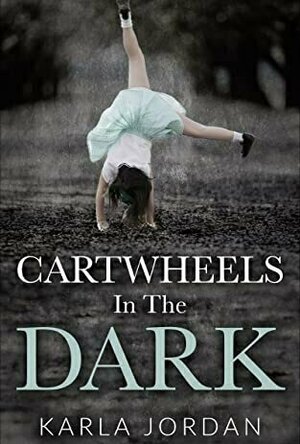
Cartwheels In The Dark
Book
There are places in the backwoods of Maine where things can and do get buried for a very, very long...
mystery suspense thriller bookbuzz
Clare Parrott (294 KP) created a post
Jul 25, 2017
MaryAnn (14 KP) rated The Return: Reflections on Loving God Back in Books
Mar 5, 2019
In her bestselling story-driven style, Christian rocker Lacey Sturm shares with readers the beautiful struggle of learning what one's unique gifts are and pursuing them wholeheartedly. She helps them see each day as a gift from God, find balance in their busy lives, and discover the joy of giving God's gifts back to him by using them to bring him glory.
Young people especially will love this openhanded and openhearted take on what to do with their lives, as will those who feel like they've been coasting or heading down the wrong path.
My Thoughts: This book speaks for its self. Take a walk with God and with Lacey Strum for a refreshing look into God's word. Take a break from a busy life and sit and listen. Learn with Lacey about God's gifts and using them for His glory. This is a good book for those who are looking into their lives and searching how to use the gifts that God gave them and looking at each day as a new canvas and a brand new start for serving Him.
I received this book free from the publisher. I was not required to write a positive review and the opinions I have expressed are my own. I am disclosing this in accordance with the Federal Trade Commission’s 16 CFR, Part 255 : “Guides Concerning the Use of Endorsements and Testimonials in Advertising.”
Kristy H (1252 KP) rated The New Neighbor in Books
Feb 13, 2018
The novel reveals its stories (and secrets) through varying narratives - mainly those of Margaret and Jennifer. We see Margaret's increasing curiosity about Jennifer's life and Jennifer's own increasing reluctance to share why she and Milo have left their old life behind. Further, we see that the two women may not be as different as they appear. Margaret begins telling Jennifer about her life as a nurse during the War, while we learn about Jennifer's life with her drunken husband. Suddenly, the parallels between the two women -- especially when pushed to the brink -- seem surprisingly clear.
This was an intriguing book, in many ways. Neither Margaret nor Jennifer are incredibly likable characters (Margaret is often your classic "old biddy" for sure), but they are interesting. In some ways, nothing really happens in the book - a lot of the action has happened in the past, and we're simply learning about it as Margaret and Jennifer reveal their respective pasts and secrets. Still, it's an insightful look into the two woman's lives - I found it quite compelling. The end was somewhat fascinating, though it did seem to fall a bit flat after all the buildup. Still, a solid 3.5 stars.
Whilst I understand that America’s post counter-culture, folksy racism/ misogyny/ homophobia [insert prejudice here] is subject to criticism by the author, there was more than one occasion where I found the discriminatory language jarringly unnecessary. It really dates the piece.
That said, on the whole, this is a really excellent read, and I was in equal parts disgusted and amused by the antics, and found myself (to some degree of shame) identifying with some of the scrapes and situations the Doctor of Journalism and his legal crony got themselves into- I mean who hasn’t found a casualty or two in their bathrooms following an impromptu house party? (Although I do wonder how events might read to those who avoided misspending their youth...)
It’s a short, pithy searing indictment of American culture, society and the tacit implication (or actually come to think of it- pretty explicit statement) that substance abuse is the only way to deal with and make sense of the chaos. So, one could argue, still pretty relevant.
Violence is frequently a first recourse, the idealisation of capitalism is metaphorically “burned to the ground” (yet antithetically also a cause for admiration) and towards the end a primate bites into an old man’s skull. What’s not to like?
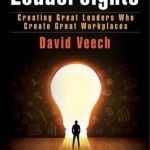
Leadersights: Creating Great Leaders Who Create Great Workplaces
Book
Love, learn, let go. Three decisions. Three actions. Three habits. Together, these offer leaders...
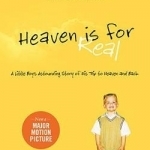
Heaven is for Real: A Little Boy's Astounding Story of His Trip to Heaven and Back
Todd Burpo, Sonja Burpo and Lynn Vincent
Book
"A beautifully written glimpse into heaven that will encourage those who doubt and thrill those who...

Blind Injustice: A Former Prosecutor Exposes the Psychology and Politics of Wrongful Convictions
Book
In this unprecedented view from the trenches, prosecutor turned champion for the innocent Mark...

Killers of the King: The Men Who Dared to Execute Charles I
Book
January, 1649. After seven years of fighting in the bloodiest war in Britain's history, Parliament...
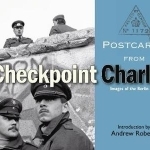
Postcards from Checkpoint Charlie: Images of the Berlin Wall
Book
Between 1945 and 1961, an estimated 2.5 million people fled East Germany in search of the political...

